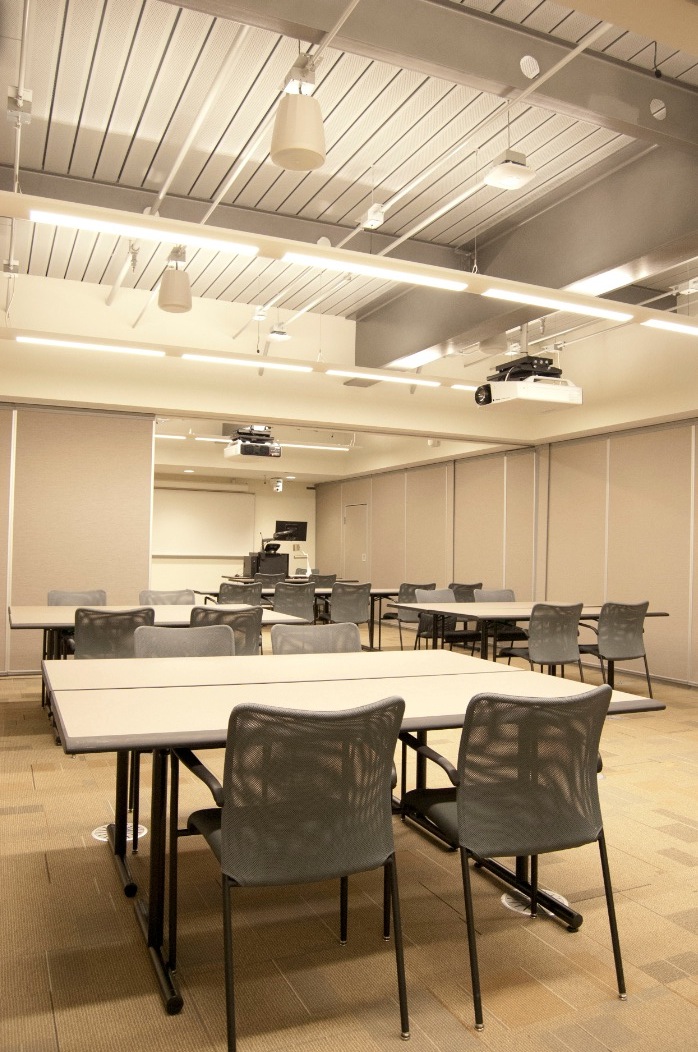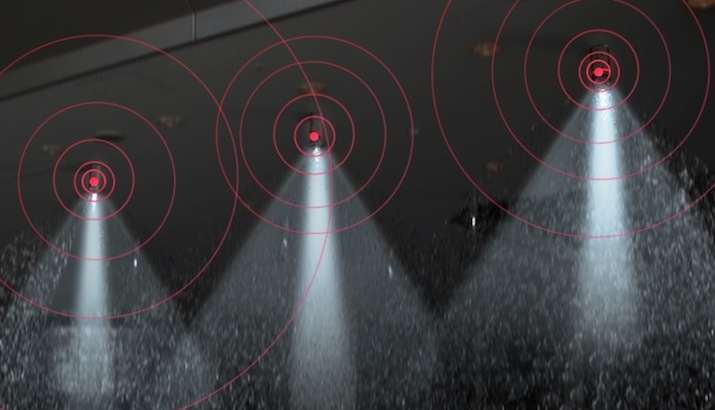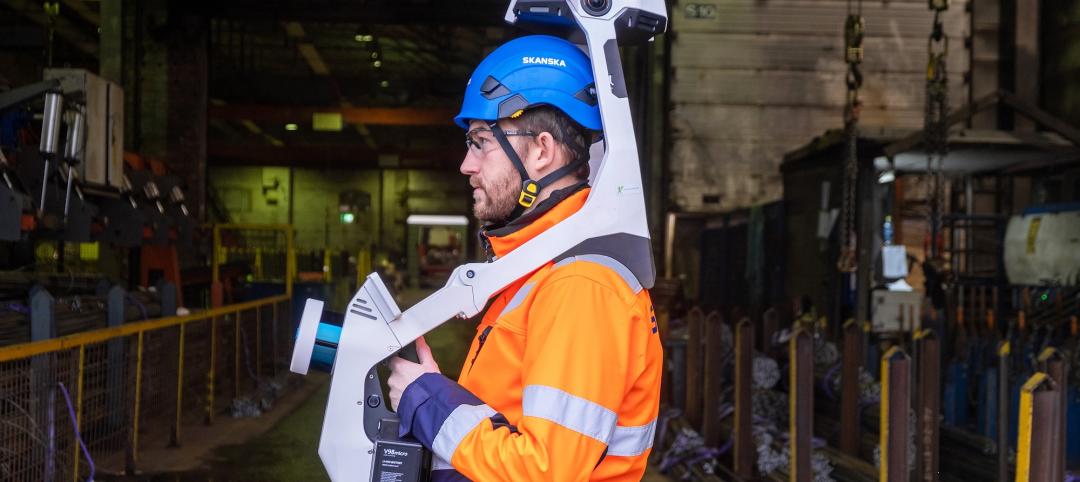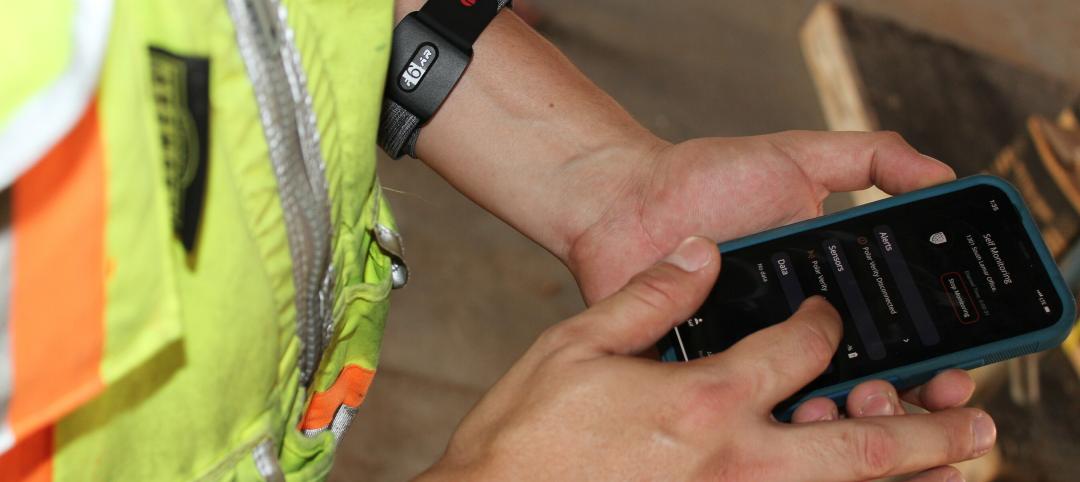For years, MEP engineers have debated the untapped potential lying within the walls and ceilings of virtually every modern commercial building: fire protection piping. Building owners sink a hefty sum into fire sprinkler infrastructure. Why not tap into this water distribution network for other uses, like toilet flushing?
Until recently, code officials have told Building Teams “hands off,” for fear of jeopardizing the integrity of these critical systems. But they are slowly coming around.
Two recent innovations are indicative of the trend. The first, the Fluid-Driven Sprinkler Light, utilizes a water turbine micro-generator with high-illumination LED light engines to provide emergency lighting without the need for batteries or other power sources (pictured above). Developed by the Industrial Technology Research Institute, the technology can provide for safer access and egress during fires, when buildings are engulfed by smoke.
High temperatures activate the sprinklers, and the flow of the water generates electricity to power the LEDs, which project a laser-based holography pattern light. The lights can be positioned to illuminate evacuation routes.
For the $29 million, four-level addition to the University of Michigan’s Institute for Social Research Expansion, in Ann Arbor, the engineering team, led by MEP engineer Peter Basso Associates, utilized the building’s fire protection piping system to distribute chilled water to the chilled beams (pictured, below). The dual-function design eliminated approximately 70% of the piping normally associated with a chilled beam system, and reduced first cost by an estimated $500,000.
It is the first installation of its kind in the U.S., and it required that all components of the combined fire protection/chilled beam system be rated for a minimum 175 PSIG (pounds per square inch gage) operating pressure, according to Brian Runde, PE, LEED AP, VP with Peter Basso Associates. He says using chilled beams helped the project reduce overall building energy use by 37.2% versus an ASHRAE 90.1-compliant building.
 Photo: Peter Basso Associates
Photo: Peter Basso Associates
Related Stories
3D Printing | Sep 13, 2024
Swiss researchers develop robotic additive manufacturing method that uses earth-based materials—and not cement
Researchers at ETH Zurich, a university in Switzerland, have developed a new robotic additive manufacturing method to help make the construction industry more sustainable. Unlike concrete 3D printing, the process does not require cement.
Smart Buildings | Jul 25, 2024
A Swiss startup devises an intelligent photovoltaic façade that tracks and moves with the sun
Zurich Soft Robotics says Solskin can reduce building energy consumption by up to 80% while producing up to 40% more electricity than comparable façade systems.
Great Solutions | Jul 23, 2024
41 Great Solutions for architects, engineers, and contractors
AI ChatBots, ambient computing, floating MRIs, low-carbon cement, sunshine on demand, next-generation top-down construction. These and 35 other innovations make up our 2024 Great Solutions Report, which highlights fresh ideas and innovations from leading architecture, engineering, and construction firms.
Building Technology | Jun 18, 2024
Could ‘smart’ building facades heat and cool buildings?
A promising research project looks at the possibilities for thermoelectric systems to thermally condition buildings, writes Mahsa Farid Mohajer, Sustainable Building Analyst with Stantec.
75 Top Building Products | Apr 22, 2024
Enter today! BD+C's 75 Top Building Products for 2024
BD+C editors are now accepting submissions for the annual 75 Top Building Products awards. The winners will be featured in the November/December 2024 issue of Building Design+Construction.
AEC Tech | Feb 20, 2024
AI for construction: What kind of tool can artificial intelligence become for AEC teams?
Avoiding the hype and gathering good data are half the battle toward making artificial intelligence tools useful for performing design, operational, and jobsite tasks.
Sustainability | Nov 1, 2023
Researchers create building air leakage detection system using a camera in real time
Researchers at the U.S. Department of Energy’s Oak Ridge National Laboratory have developed a system that uses a camera to detect air leakage from buildings in real time.
Resiliency | Aug 7, 2023
Creative ways cities are seeking to beat urban heat gain
As temperatures in many areas hit record highs this summer, cities around the world are turning to creative solutions to cope with the heat. Here are several creative ways cities are seeking to beat urban heat gain.
AEC Innovators | Jun 15, 2023
Rogers-O'Brien Construction pilots wearables to reduce heat-related injuries on jobsites
Rogers-O'Brien Construction (RO) has launched a pilot program utilizing SafeGuard, a safety-as-a-service platform for real-time health and safety risk assessment. Non-invasive wearables connected to SafeGuard continuously monitor personnel to prevent heat exhaustion on jobsites, reducing the risk of related injuries. RO is the first general contractor to pilot this program.
Office Buildings | May 15, 2023
Sixteen-story office tower will use 40% less energy than an average NYC office building
This month marks the completion of a new 16-story office tower that is being promoted as New York City’s most sustainable office structure. That boast is backed by an innovative HVAC system that features geothermal wells, dedicated outdoor air system (DOAS) units, radiant heating and cooling, and a sophisticated control system to ensure that the elements work optimally together.

















